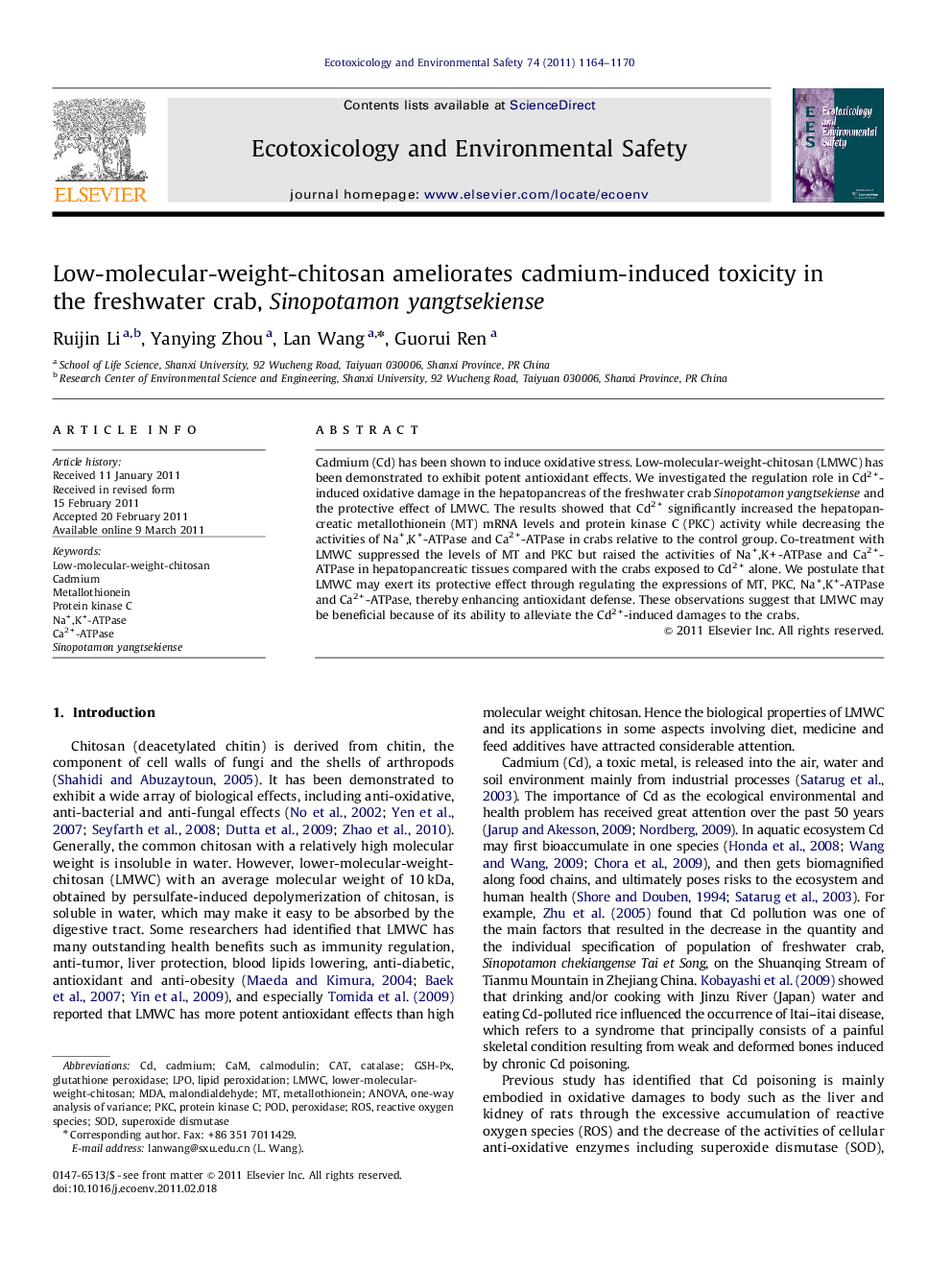| Article ID | Journal | Published Year | Pages | File Type |
|---|---|---|---|---|
| 4421191 | Ecotoxicology and Environmental Safety | 2011 | 7 Pages |
Cadmium (Cd) has been shown to induce oxidative stress. Low-molecular-weight-chitosan (LMWC) has been demonstrated to exhibit potent antioxidant effects. We investigated the regulation role in Cd2+-induced oxidative damage in the hepatopancreas of the freshwater crab Sinopotamon yangtsekiense and the protective effect of LMWC. The results showed that Cd2+ significantly increased the hepatopancreatic metallothionein (MT) mRNA levels and protein kinase C (PKC) activity while decreasing the activities of Na+,K+-ATPase and Ca2+-ATPase in crabs relative to the control group. Co-treatment with LMWC suppressed the levels of MT and PKC but raised the activities of Na+,K+-ATPase and Ca2+-ATPase in hepatopancreatic tissues compared with the crabs exposed to Cd2+ alone. We postulate that LMWC may exert its protective effect through regulating the expressions of MT, PKC, Na+,K+-ATPase and Ca2+-ATPase, thereby enhancing antioxidant defense. These observations suggest that LMWC may be beneficial because of its ability to alleviate the Cd2+-induced damages to the crabs.
